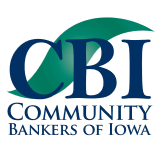The Leggs alleged that West Bank’s overdraft fees violated the usury laws in the ICCC. West Bank denied these claims by arguing that the overdraft amounts did not constitute an extension of credit—which matters under the ICCC because the limit on finance charges only applies to “creditors . . . extending credit in consumer credit transactions.” The bank also argued that the NSF fees were not a finance charge. The court did not need to decide whether the NSF fees were a finance charge because they first concluded that overdraft protection is not an extension of credit.
The court couched its analysis on whether the bank granted the Leggs the right to defer payment of the debt incurred (the overdraft). The deposit account agreement between the bank and the customer did not provide this right. In fact, the agreement granted West Bank the right to collect payment of the overdraft as soon as a customer deposits enough funds into his account, thus making the payment for the overdraft due immediately. Because these charges were due at the time the account was overdrafted, the fees are not “credit” under Iowa law.
The Iowa Supreme Court has provided clarification of a critical issue in a time of uncertainty surrounding NSF fees throughout the country. Georgia’s courts and legislature addressed this issue in 2014, and the Bank of Oklahoma saw a class action commence in 2015 on this very issue. The Supreme Court’s ruling in this case is aligned with the guidance provided by the Iowa Superintendent of Banking and the amendment made to the ICCC by the state legislature in 2014. This decision is a reminder for Iowa chartered banks to review and update their deposit agreements, especially in light of the second issue (order of processing payments) discussed in Legg v. West Bank, which will be addressed by this blog next week.
While banks are legally permitted to charge NSF fees as a matter of Iowa law, the Consumer Finance Protection Bureau (CFPB) is looking closely at NSF fees. Regardless of the Iowa Supreme Court’s decision in Legg, it is likely that there will be federal rules governing NSF fees in the near future. Nevertheless, the outcome of Legg is significant because it ensures that Iowa banks will not face liability for NSF fees they have already charged.
The material in this blog is not intended, nor should it be construed or relied upon, as legal advice. Please consult with an attorney if specific legal information is needed.

 RSS Feed
RSS Feed